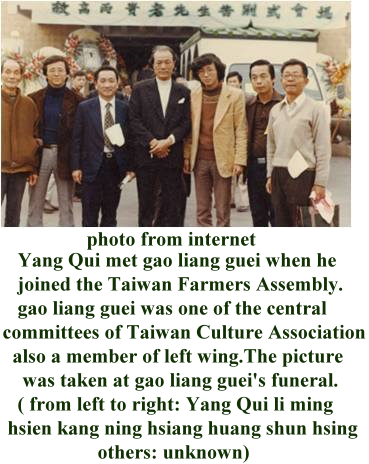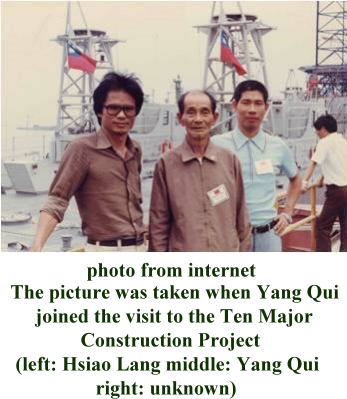Social movement
“He put his both hands on civilian literature and both feet on social movements.”—Yang Cui (Yang Kui's granddaughter)
After his study in Japan, Yang Kui started to be enthusiastic in peasant movements and social movements. 
In 1927, Yang Kui joined a Taiwanese political organization ” Social Sciences Research Department”, and participated in a Korean Anti-Japan speech; thus, he was behind bars for the first time in his life. After he was released, to support Taiwan peasant group, he went back to Taiwan. At that time, rank movements became the major of social movements. In virtue of the rise of peasant and workers groups, the leaders of social movements were all keen for the talented. Therefore, Yang Kui decided to put his study aside, and finally went back to Taiwan in September 1927.
Yang Kui didn't cease progress, but kept developing Taiwan social movements even more rapidly. He participated in series of presentation on tour which were held by Taiwan Culture Association for educating residents. However, this year Taiwan Culture Association was facing separation caused by arguments. Facing this situation, Yang Kui joined peasant group, which valued peasant and worker right. By the way, joining peasant group also let him meet the one who accompanied him foe whole life, his wife, Ye Tao.
However, Yang Kui, who insisted in legal revolution, refused to join the underground organization of Taiwanese Communist Party. Thus, he was excluded out of main social movement groups. On February 12th 1929, the whole country launched arrest to members of peasant group. After Yang Gui and Ye Tao's speech at Tainan Federation of Trade Unions, they were both caught at dawn and were sent into Taichung prison for seventeen days. 

